Economy & Work
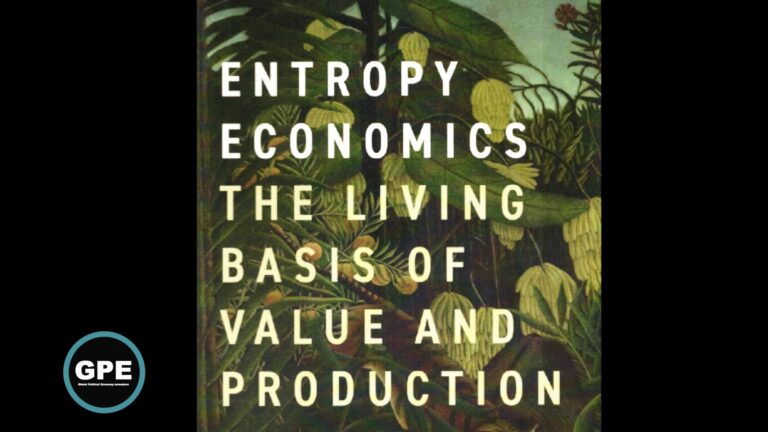
From the Fossil-Fuel Civilization Into …? A Biophysical Reality Check
James K. Galbraith (Entropy Economics) argues that economics cannot keep ignoring that energy and resources for production are no longer abundant and easy to access. Drawing from the fundamental laws of nature, he proposes a viable framework of economic analysis to envisage the future of human society. Produced by GPEnewsdocs.
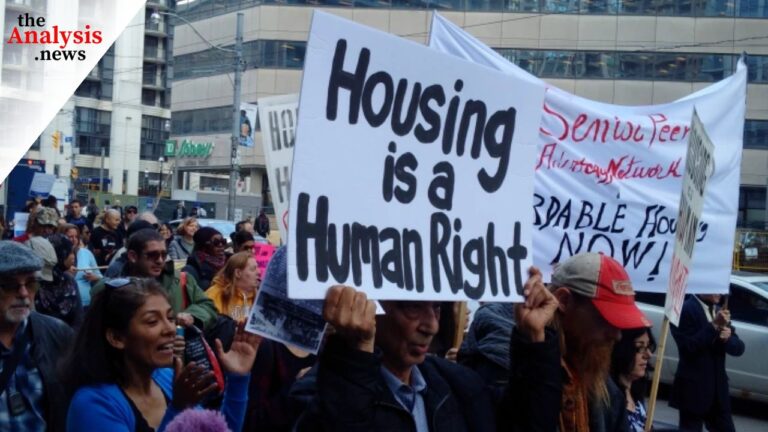
Housing a Basic Right or Playground for Global Capital? – Paul Jay
In this video, we explore how Wall Street firms, REITs (Real Estate Investment Trusts), and private equity giants are reshaping housing markets—treating homes as hedge funds and tenants as revenue streams. The result? Displacement, skyrocketing rents, and the collapse of housing as a public good.
But it doesn’t have to be this way. What if we took housing out of the hands of corporate landlords and made it public infrastructure—like schools, libraries, and transit systems?
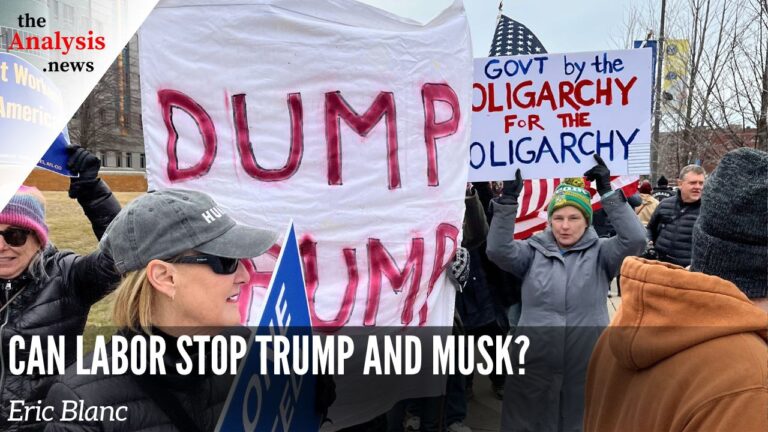
Can Labor Stop Trump and Musk? | Eric Blanc on theAnalysis.news
On this episode of theAnalysis.news, Frank Hammer speaks with labor scholar and activist Eric Blanc about the growing role of organized workers—especially federal unions—in confronting the Trump-Musk authoritarian agenda. They discuss the resurgence of May Day protests, the push for a general strike in 2028, and the urgent need for mass resistance now, not later.
Blanc outlines how Trump’s attacks on federal unions are a warning shot for the entire labor movement, drawing historical parallels to Reagan’s PATCO firings. He also calls on union leaders, including the AFL-CIO, to move beyond court battles and into coordinated, disruptive action.
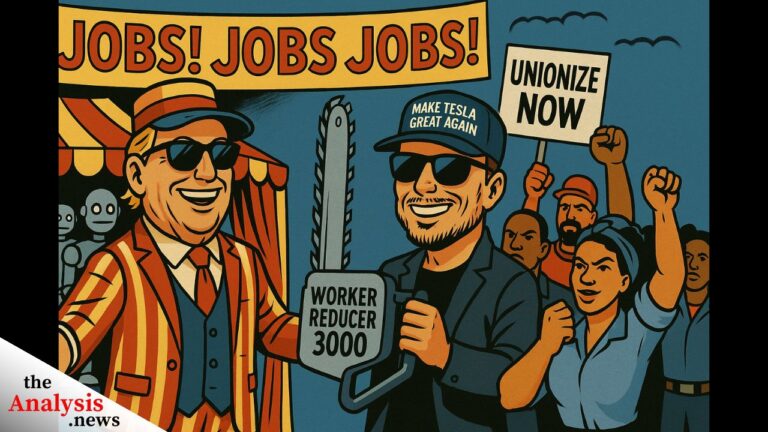
Part Two – Boast About Jobs, Suppress Worker Power
Trump sells his tariff agenda as a jobs boom for American workers — but it’s a smokescreen for a global attack on labor. At home, new factories are routed to anti-union states, while Trump’s appointees quietly dismantle the NLRB to block worker organizing. Abroad, tariffs target export economies like China, Vietnam, and Bangladesh, fueling layoffs and driving down wages to benefit U.S. corporate margins. It’s a calculated campaign to suppress labor power worldwide. But the chaos it’s unleashed — from domestic legal battles to global economic disruption — suggests the plan may be backfiring. Even some of Trump’s allies are starting to question whether the madness is strategic… or just madness.
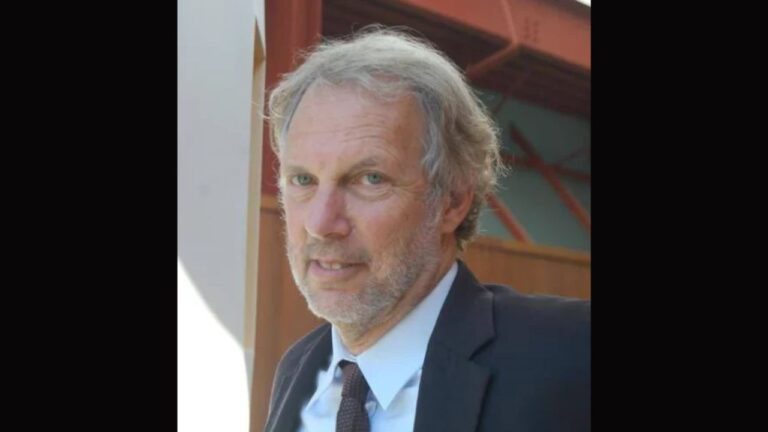
Can the Green Transition Work for Workers? – Robert Pollin
This interview was produced by INET. Robert Pollin presents a compelling case for a global Green New Deal that fights climate change without sacrificing jobs. He explains why the shift to renewable energy is not just technologically possible, but economically beneficial—creating far more jobs than fossil fuels. But without strong labor protections and guaranteed wages, pensions, and reemployment for fossil fuel workers, the transition risks political backlash. Drawing from work in West Virginia and beyond, Pollin outlines the real costs, benefits, and global financing strategies needed to meet the 2050 net-zero target—while ensuring no community is left behind.

The Decline of American Journalism – Robert McChesney
In remembrance of Robert W. McChesney, the esteemed media scholar and activist who passed away on March 25, 2025, we are republishing an interview that delves into his profound insights on media, democracy, and society. McChesney, co-founder of the media reform organization Free Press and author of influential works such as “Rich Media, Poor Democracy,” dedicated his life to challenging corporate control of the media and advocating for a more democratic communication system. Through this conversation, readers can revisit McChesney’s enduring contributions and the critical perspectives he shared throughout his career.
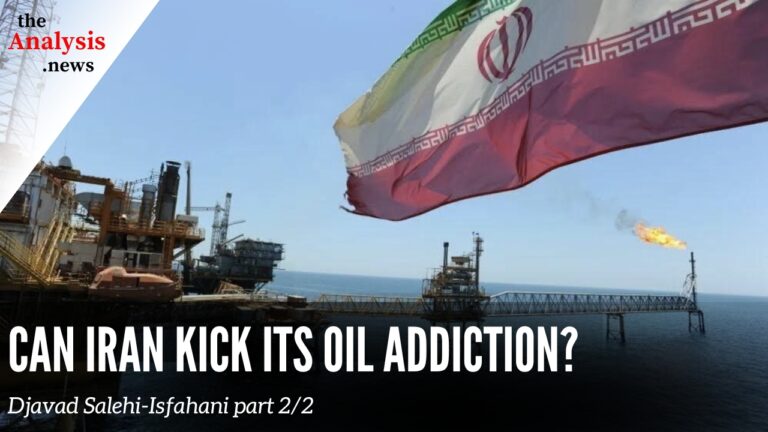
Can Iran Kick Its Oil Addiction? – Djavad Salehi Isfahani Pt. 2/2
In part two, economist Djavad Salehi-Isfahani outlines what’s necessary for Iran to have a just energy transition and sustainable future. Salehi-Isfahani urges a reversal of destructive U.S. sanctions in order for Iran to better tap into its highly-educated workforce. He also argues that Iran is in a much more advantageous position to move away from its oil-export model, especially when compared to other oil-producing Gulf countries.
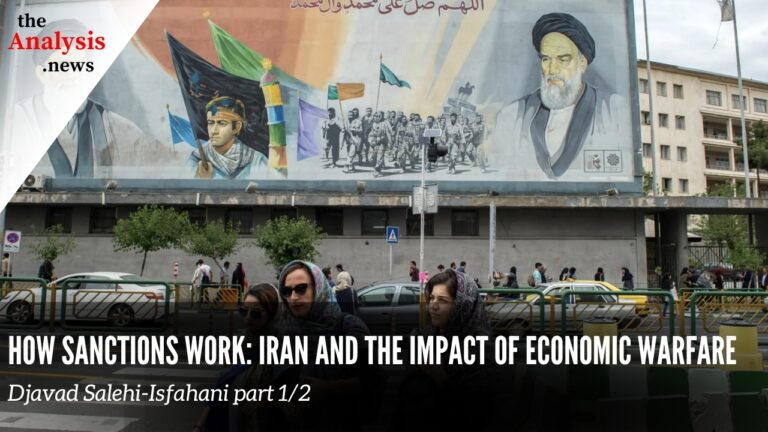
How Sanctions Work: Iran and the Impact of Economic Warfare – Djavad Salehi-Isfahani Pt. 1/2
U.S. President Trump has extended the aims of his first presidential term’s “maximum pressure campaign” by slapping additional sanctions on Iran. Djavad Salehi-Isfahani, Professor of Economics at Virginia Tech, describes the detrimental effects of U.S. sanctions on Iran’s economy and society. Salehi-Isfahani illustrates how the sanctions’ differentiated effects often result in them being “invisible” to certain segments of Iranian society, leaving some Iranians convinced that their government is solely to blame for the country’s economic woes. In addition, he asserts that the combined effects of U.S. sanctions and Iran’s policy choices continue to hollow out the Iranian middle class: while the government has assisted the poor with large direct cash transfer programs, it has largely ignored the demands of its middle class.
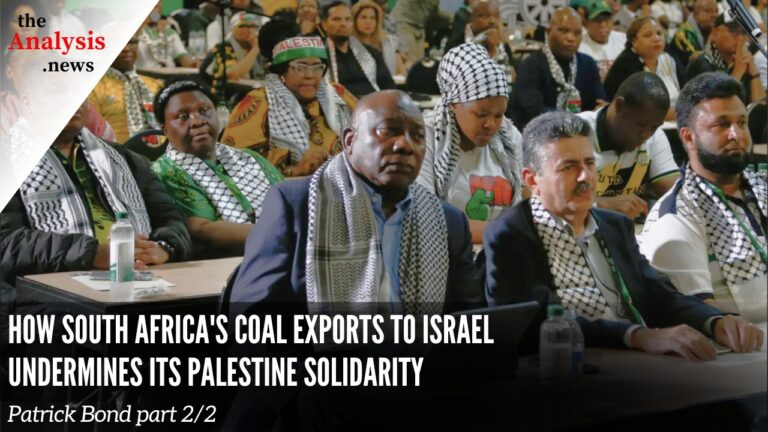
How South Africa’s Coal Exports to Israel Undermines Its Palestine Solidarity – Patrick Bond Pt. 2/2
In part two, political economist Patrick Bond outlines the activities of Glencore and other South African energy corporations which continue to ship coal to Israel’s electricity grid. Despite the historic efforts of South Africa to bring a genocide case against Israel at the International Court of Justice, as well as its involvement in the Hague Group to demand enforcement of international rulings on Israel’s unlawful occupation, Bond discusses South African policies and crony capitalist transactions which ultimately undermine these Palestine solidarity initiatives. With corporations such as India’s Adani Group heavily invested in Israel’s economy, Bond exposes the contradictions in BRICS’ stance towards Israel.
End of content
End of content